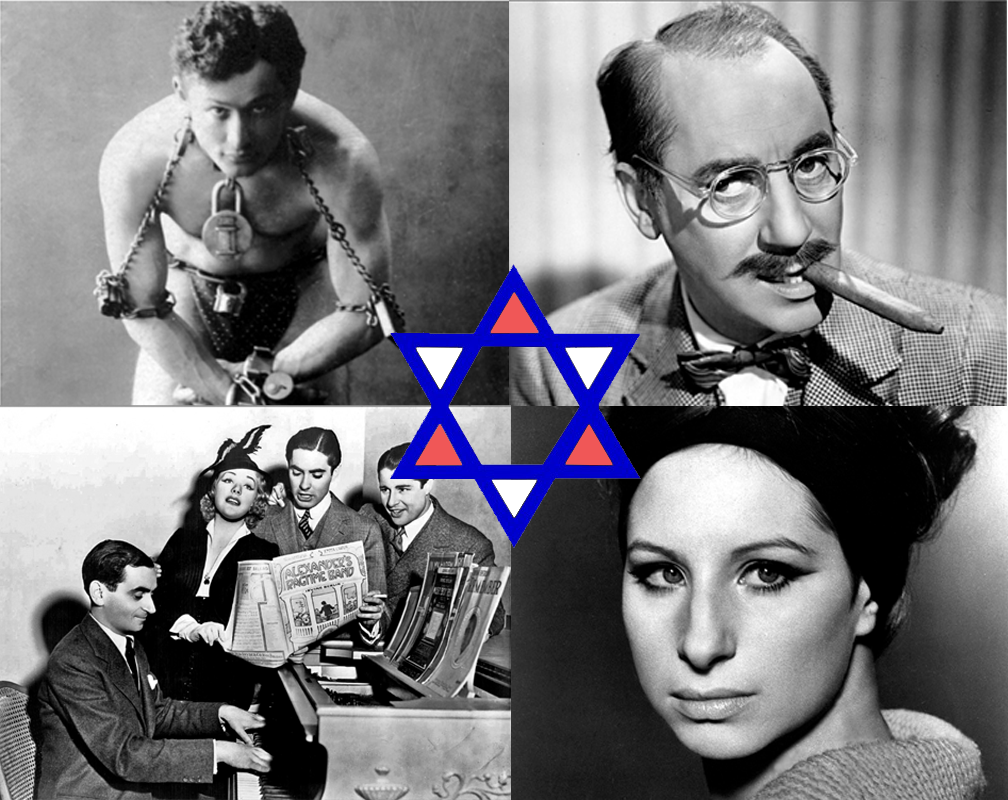Irving Berlin. Joan Rivers. Groucho Marx. Sarah Silverman. Fanny Brice. Lou Jacobs. Sophie Tucker. Barbara Streisand. Harry Houdini. George Gershwin. These are comedians, magicians, songwriters, performers, actresses, composers, singers, and even a clown. They are also all Jewish, yes — but what makes this group of individuals even more distinct is that they are all American Jews, proudly weaving the fabric of American society, culture, and history.
This May, their pictures rotate on the front page of the Jewish American History Month website, reminding visitors of the prominent looming figures who have shaped the entertainment industry (sometimes singlehandedly).
But Jews have been involved in a lot more than entertainment (no matter what the slurs about Jews in Hollywood would lead us to believe).
According to the Jewish-American Hall of Fame, the first Jew came to the new world along with Columbus: “The only known Jew on Columbus’ voyage was Luis de Torres, though he had to be baptized shortly before sailing. Torres knew Hebrew, Aramaic and some Arabic. Simon Wiesenthal speculates (in Sails of Hope) that ‘after the landfall in America, the first words addressed to the natives were Hebrew.’ What is known for sure is that Torres was the first European settler in the New World. He set up his own small empire in Cuba, after leading an expedition into its interior and winning the friendship of the Indian ruler. As an independent ruler of Spanish territory, Torres received an annual allowance from the Spanish royal family.”
A few hundred years later, the first Jews began to sow their seeds in the new, fertile, soon-to-be “homeland.”
The Jewish-American Hall of Fame confirms, “The first group of Sephardi and Ashkenazi Jewish settlers arrived in New Amsterdam in September 1654, following their escape from the onslaught of the Inquisition in Recife, Brazil.” Although they did not receive a warm welcome upon their arrival (being called the “deceitful race” who practiced an “abominable religion” by the Dutch West India Company), the first settlers persevered, eventually being allowed to stay thanks to the influence of the Jewish directors of the company.
Thanks to the company directors standing up for their brethren, Jews are now prosperous and plentiful in America, and some reports even estimate that there are more Jews living in the United States than in Israel. Therefore, it is an unavoidable fact that the Jewish focal lens has recalibrated to gaze upon both Israel and America as centers of Jewish life — American Jews play an equal role in shaping the global Jewish legacy as well as the American future.
According to the official government Jewish American Heritage Month website, on April 20, 2006, Former President George W. Bush proclaimed that May would be Jewish American Heritage Month. The background continues, “The announcement was the crowning achievement in an effort by the Jewish Museum of Florida and South Florida Jewish community leaders that resulted in resolutions introduced by Rep. Debbie Wasserman Schultz of Florida and Sen. Arlen Specter of Pennsylvania urging the president to proclaim a month that would recognize the more than 350-year history of Jewish contributions to American culture. The resolutions passed unanimously, first in the House of Representatives in December 2005 and later in the Senate in February 2006.”
In order to celebrate, the United States Holocaust Memorial Museum, the Library of Congress, the National Archives, and the National Gallery of Art are all hosting events ranging from conversations with Holocaust survivors to book signings to film screenings.
Jewish groups at UCLA, however, do not appear to be doing anything substantial to celebrate. Perhaps this is due to the conception that Jewish American Heritage Month is not a legitimate Jewish holiday, and therefore deserves less attention than an age-old tradition. Or maybe it is due to the recentness of Jewish American Heritage Month’s initiation in the official American celebrations. Or maybe it is because as Jewish students attending a non-religious American university, we are already embodying what it means to live both in the Jewish and secular world, forming our identities through Jewish programs (or just Jewish guiding values) and the larger modern world. Perhaps we are the essence of the Jewish American History Month every single day of the year.

